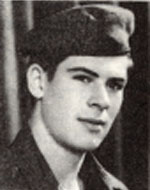Frydman, Michael (Mirel)
Michael (Mirel), son of Lea-Liza and Reuven, was born on the 10th of Adar 1953 in Bucharest, Romania, and immigrated to Israel with his family in 1965, at the age of eleven and a half. The family moved to a new immigrant housing project in Kiryat Shemona, where she worked for seven months, and her economic situation worsened, and from there she moved to Netanya, where for a year she struggled to find a job that would support his family. Also in Kfar Saba, where he moved from Tel Aviv, Michael completed his studies at Gordon Elementary School, and as he was affectionately called his family and friends, he was a loving son of his family, always trying to help my parents To be absorbed in their new environment, which was so often replaced, even though it was very difficult for him to adapt to the various schools, to the new student society, and to the demands that were so common to him before he immigrated to Israel. When he was about to continue his high school studies at the “Onim” school in Kfar Saba, he decided to go to a professional direction and study frameworks at the ORT school, which was more important than the talent of verbal formulation. Mirel passed the exams successfully and even began working at Tel Hashomer. However, after a while he stopped working to prepare for the IDF’s induction, and he met a few young men who were about to enlist, and their closeness to each other was reflected in their visits and visits to each other’s home. A single child, without brothers and sisters, who moved from country to country and from city to city, because of the transition from school to school, he was unable to establish long lasting contacts and acquaintances, And dispersed. Michael was drafted into the IDF at the end of July 1971. After basic training, and after completing his training course for saboteurs, he was assigned to serve as a sapper in a paratroop unit. His unit served in the “Argaman” Nahal Brigade, and Mirel’s job was to drive one of the tractors of the settlement as part of the routine agricultural work there. For the first time in his life, Mirel found himself in the company of the native-born, on one side, in the face of one challenge, and as his commander said: “He knelt down to the idea of pioneering fulfillment of the land.” The new members were more stable this time. Together they went through a period in which they lived and worked together, spent time together and celebrated together, and had conversations among themselves. Each of them knew his place in the relatively small and isolated spot, and Mirel became fond of his friends and excelled in his responsibility and devotion to carrying out everything he was assigned. During vacations he used to come to his parents’ house, sit down with them, and tell them about what happened to him in his new home. Mirel often corresponded with them to prevent them from feeling lonely in his absence from home. Modesty did not boast of his accomplishments, nor did he tell them about his difficulties. He always tried to make them Simcha with stories of Simcha things, and invited them to visit him for their pleasure. On February 19, 1974, Michael fell in the line of duty. He was brought to eternal rest in the military section of the Kfar Saba cemetery. Survived by his parents.
